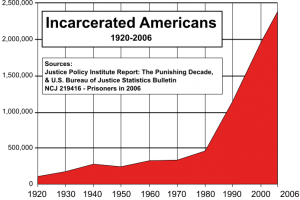I first took Economics in Grade 11. We used the standard college textbook at time, written by Lipsey, Steiner, and Sparks.
It started with axioms–the assertions upon which economics are based. The most important axiom was the following: Humans act to maximize utility.
Utility.
What is economic utility? It’s generally defined as how useful a product or service is to someone.
How do you find out how much utility an item has?
It is a revealed preference. That is to say, how much utility something has is shown by how much people buy it and how much they are willing to pay for it.
So, Coca-Cola has vast economic utility, for example, but it has less than it used to have in many countries, where people are buying much less of it.
Basically, utility says, “Whatever action people choose to take is the one from which they derive the most usefulness.” This is known as revealed preference.
This is a circular definition; metaphysical in the worst sense. Any action we take is utility maximization. A person can never fail to maximize utility (within their budget), because their actions are what defines the actions’ utility.
(I am fundraising to determine how much I’ll write this year. If you value my writing, and want more of it, please consider donating.)
People are utility maximizers. Whatever they do is meant to maximize their utility, therefore anything they do is maximizing their utility.
Note that utility is not happiness. It is not health. It is not meaning. It is not pleasure. It is not avoidance of pain. It is not self-satisfaction. Utility boosters would claim that it includes all these things.
But you can’t measure utility except as price and behaviour. “If they do it, it must have maximal utility for them.”
This is based on another axiom of economics. “Humans are rational.” This axiom has been hit badly in modern economics, but it still underlies most of the models.
Note that utility is always measured as whatever actions people take. This allows no room for self-destructiveness (they must want to be self-destructive!), now does it allow room for not knowing what is good for oneself, for making bad decisions, for doing things which makes one unhappy, and so on.
Utility is not independently measurable. We can (sort of) measure happiness, or pleasure, or meaning, or physical health. We could then ask, “Do these actions actually produce any of these things?”
For example, money produces quite a bit of happiness up to the point where you have everything you need and some security. After that point, it doesn’t produce much compared to other things like having a loving spouse, say.
If we said, “Humans act to increase their happiness,” a common assertion in philosophy, we would have some way of measuring that, albeit roughly.
We cannot measure utility maximization, because utility is always maximized.
This is a statement of belief. “People must do things because they know those things are useful to them in some way, and they must choose that which is most useful.”
Well, no, no they don’t. You don’t need a Ph.D. to know that, you just need to have lived life and seen that people often don’t know what would improve their situations, and, when they do, they often choose not to take those actions, even when they could and often when they wish they would.
Utility maximization doesn’t make sense. Utility itself is a concept with no “useful” definition. Trying to use utility as a concept in the real world leads to circular bullshit: “Well, people are doing these things, therefore, they must be the best things for them even if they don’t seem to be. Who are we to ban trans fats in the face of revealed preferences?”
This leads to all sorts of arguments that take the form of, “Well, yes, we know X has a bad effect on people, but they have chosen X, so, therefore, we should not interfere.” This scales from drinking pop, to borrowing money for college, to activities which have caused global warming.
Actual decision-making, if it is to be rational, depends on an individual knowing their actual objectives re: the decision. Do we want more happiness? Do we want love? Do we want to be healthy? We can measure those things. (On an individual level, yes, even love. I know when I’m in love–though I grant I used to mistake infatuation for love. Still, infatuation was closer to love than not.)
As a society, we probably want to satisfice. We can’t actually measure progress in utility. We can measure progress in happiness, health, childhood mortality, and even in meaning. We can measure infrastructure deficits, and pollution, and global warming, and income mobility.
Utility is best used when you turn it into a basket of “good stuff” and measure those good things.
As for market economies, for capitalist economies, they work best when you take money (price) and you say: “The more people have of this the happier they should be.” As for “utility” maximization as a society, if money is leading to that basket of goods, you try and get everyone past the point where utility starts to sharply decline.
At that point, you work on policies which directly benefit various metrics. Do parks make people happier? Build park. Does more free time make people happier? Give them more free time. Does less chronic disease make them happier (or less unhappy)? Work on that.
How do you work on those things? You progressively tax people who are above the utility inflection point. If $40K/year is where your inflection point is, you don’t tax people who earn that amount or less, and you increasingly tax people above that.
“Any income above one million has a negligible effect on measured utility (the basket). Therefore, we are taxing you at 95 percent and will spend that money on activities which do increase ‘utility.'”
Because increased inequality decreases various, actually measurable, criteria such as health, happiness, and life-satisfaction, there is even an argument for a simple, 100 percent cutoff point. “Any income beyond this point makes you worse off, and makes society worse off.”
As for utility, as it currently exists, it is a form of Panglossianism. “Whatever a person is doing, that must be what is best for them!” We know that’s bullshit in social terms (this is not the best of all possible worlds, unless it is the only possible world), and we know it’s bullshit in terms of individuals because we all know people (and maybe are people) who could have been far better off if we’d done a few things differently or if society was a little different.
Economics, as a discipline, has some useful things to say, but it was created in an attempt to mimic not just the sciences too closely, but to mimic the certainties of Euclidian geometry and other axiomatic systems too closely.
And there is no such thing as utility in any useful, pragmatic, usable sense.
If you enjoyed this article, and want me to write more, please DONATE or SUBSCRIBE.


 He’s a nativist populist.
He’s a nativist populist.